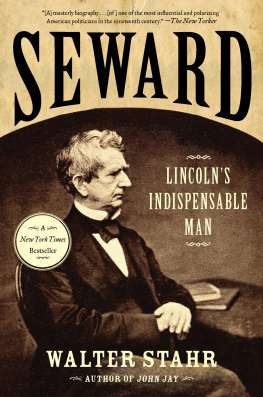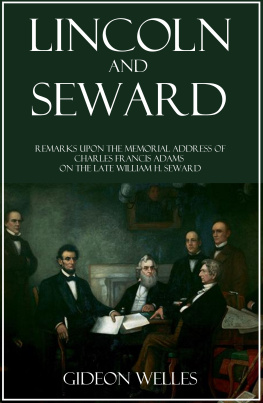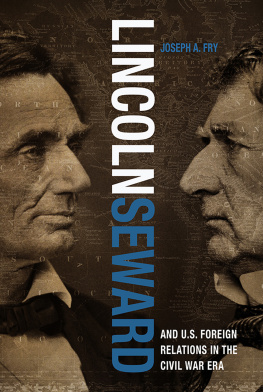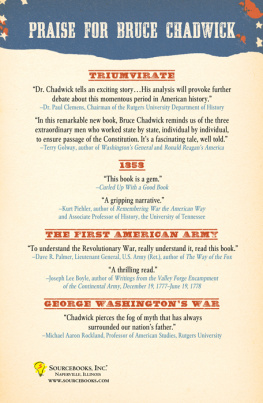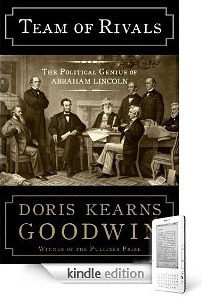WILLIAM HENRY SEWARD
ALSO BY JOHN M. TAYLOR
General Maxwell Taylor
Garfield of Ohio
From the White House Inkwell
(WRITING AS RICHARD C. ALLEN)
Koreas Syngman Rhee
WILLIAM HENRY SEWARD
Lincolns Right Hand
JOHNM. TAYLOR

Copyright 1991 John M. Taylor
Taylor, John M., 1930
William Henry Seward: Lincolns right hand / John M. Taylor.-
1st Brasseys Five-Star pbk. ed.
p. cm.
Originally published: New York, NY: HarperCollins, 1991.
Includes bibliographical references and index.
Published by Potomac Books, Inc., 2005.
ISBN 978-1-57488-119-6
1. Seward, William Henry. 18011872. 2. Cabinet officersUnited StatesBiography. 3. StatesmenUnited StatesBiography. 4. United States. Dept. of StateBiography. 5. United StatesForeign Relations18611865. 6. United StatesPolitics and government18611865 I. Title.
[E415.9.S4T38 1996]
973.7092dc20
[B] 96-2816
CIP
For P. S. T.
CONTENTS
PREFACE
AS A YOUNG man, William Henry Seward once remarked that he was an enigma, even to himself. Historians have not disputed this self-appraisal by one of the more complex figures in American political history. Privately Seward was simultaneously a devoted husband and an absentee spouse. Politically he was a reformer who worked in close alliance with one of the first political bosses of his day, Thurlow Weed. Seward longed for the Republican presidential nomination in 1860, yet spent half the year preceding the Republican convention on holiday in Europe. As Lincolns secretary of state he pressed unsuccessfully for authority comparable to that of the president himself, but when rebuffed went on to become one of Lincolns most loyal wartime associates.
As secretary of state, Seward helped avert the one developmentforeign interventionthat might have led to a Confederate victory in the Civil War. But students of that conflict, preoccupied with what took place on the battlefield, have been inclined to slight his role. There are, at this writing, several thousand books about Abraham Lincoln; the Louis A. Warren Lincoln Library, in Fort Wayne, Indiana, lists more than ten thousand Lincoln titles (although these include pamphlets as well as books). In contrast, there are no more than a dozen about Seward, of which only twoBurton Hendricks 1946 volume, Lincolns War Cabinet, and the 1967 biography by Glyndon Van Deusenhave any place on a contemporary bookshelf.
Why has Seward been largely ignored over the years? In some quarters it was felt necessary to denigrate Seward in order to build up Lincoln. This attitude is in itself remarkable, for Lincolns achievements require no gilding. But Lincolns successes were not achieved in isolation, and in leading the country during the Civil War he had no abler lieutenant than the man he defeated to become his partys presidential nominee.
A complicated and occasionally devious person, Seward was one of the political giants of his generation, and he deserves recognition in his own right. As governor of New York, Seward was a pioneer in prison reform. In the U.S. Senate, he sought to contain the expansion of slavery with a view to its eventual abolition. As secretary of state during the Civil War, he fended offthrough a combination of threats and cajoleryforeign intervention until the Union victory at Gettysburg made such intervention clearly inadvisable. Under Andrew Johnson, he maneuvered the French out of Mexico, set the stage for arbitration of the Alabama claims, and almost single-handedly brought about the purchase of Alaska from Russia.
The search for the real Seward begins at the Seward house in Auburn, New York. The home in which William Henry and Frances Seward lived as newlyweds, and in which Henry died, remained in the Seward family until 1951; it was subsequently opened to the public and in 1964 became a historical trust. To the visitor little appears to have changed since Sewards day. The foyer is chockablock with souvenirs of the secretarys travels to foreign lands. On the second floor the walls are covered with prints and photographs of the sovereigns and foreign envoys with whom Seward dealt as secretary of statemy tormentors, as he called them. The gazebo in the garden is much as it was when Frances Seward, sorely afflicted, sought refuge there during the war. The carriage house contains the vehicle from which Seward was thrown in April 1865, causing him to be at home recuperating on the night Lincoln was shot, and thus an easy target for one of Booths accomplices.
Although the literature relating to Seward is sparse, a few volumes are of special value to the biographer. One is the three-volume biography published by Sewards son Frederick in 1890. In retirement Secretary Seward had begun an autobiography, but he died before describing his years of national political prominence. Frederick completed the work, quoting extensively from his fathers lettersa contribution in itself, for William Henry Sewards handwriting was as wretched as that of any prominent American of his day.
In 1900 Frederic Bancroft published a two-volume biography that was more objective than Frederick Sewards work, though not so detailed. Not until nearly seven decades later was Seward the subject of a major study by a professional historian. Van Deusens work, mentioned earlier, is exhaustive in chronicling Sewards rise in New York politics but somewhat less satisfactory in its treatment of the Seward family and of Sewards wartime diplomacy.
A number of people have assisted in the writing of this book. Betty Lewis, curator of the Seward House, not only shared her encyclopedic knowledge of the Seward family but made available photographs and press clippings as required. Karl Kabelac of the University of Rochester Library facilitated my use of the Seward Papers there. Ruth Cook of the Louis A. Warren Lincoln Library provided photographs and several old pamphlets. Dr. John K. Lattimer, an author and a collector of assassination memorabilia, provided a photograph of the knife with which Seward was nearly killed in 1865. The staff of the Goshen, New York, Historical Society and the Schaffer Library at Union College, Schenectady, New York, photocopied Seward letters in their collections on my behalf. Susan Lemke, chief of special collections at the National Defense University, helped locate several elusive books, as did Elden (Josh) Billings, a longtime collector of literature relating to the Civil War. An autograph collector in Manhattan who requested anonymity made available several unpublished Seward letters.
Two distinguished scholars, Robert C. L. Scott of Williams College and Terry Alford, a biographer of John Wilkes Booth, read sections of the manuscript and provided valuable criticism. My London-based daughter, Alice Taylor McVeigh, offered a number of useful comments.
This book, like others by me, has benefited greatly from repeated readings by my wife, Priscilla, a professional editor whose publications include the Phi Beta Kappa quarterly newsletter. Her comments have gone beyond style and format to include many suggestions as to the interpretation of Sewards complex character.
1
A Convention in Chicago
THROUGHOUT MUCH OF the nineteenth century, Americans were fascinated with the West. For the generation that witnessed the Civil War, the lure of the Westwhich many thought began at the Alleghenieswas irresistible. California enjoyed a mystique not unlike that of outer space today. In the words of one old-time orator, Caleb Cushing, the day was approaching when the great West shall stretch forth its arm of power... to command the destiny of the Union.
Next page



